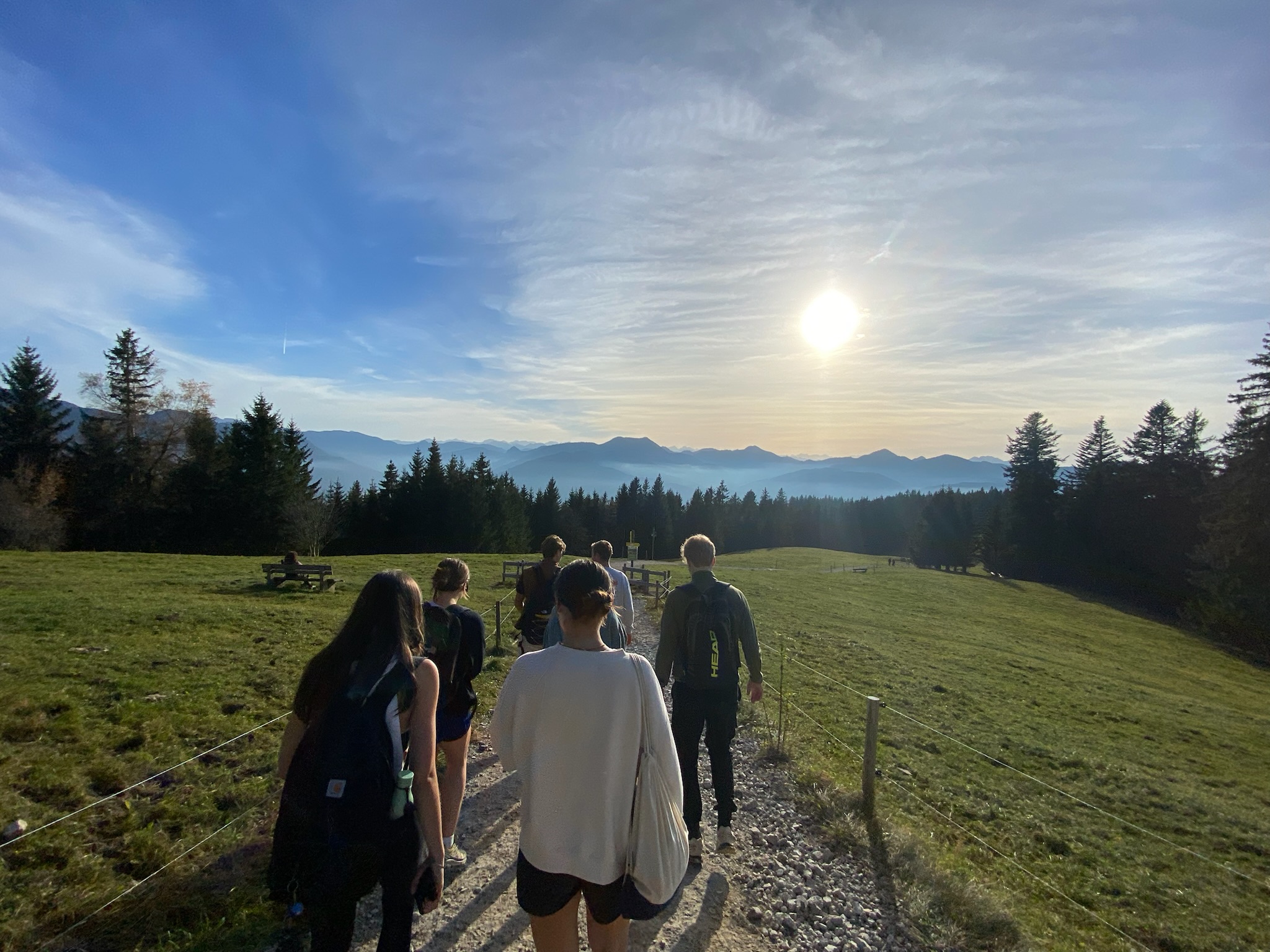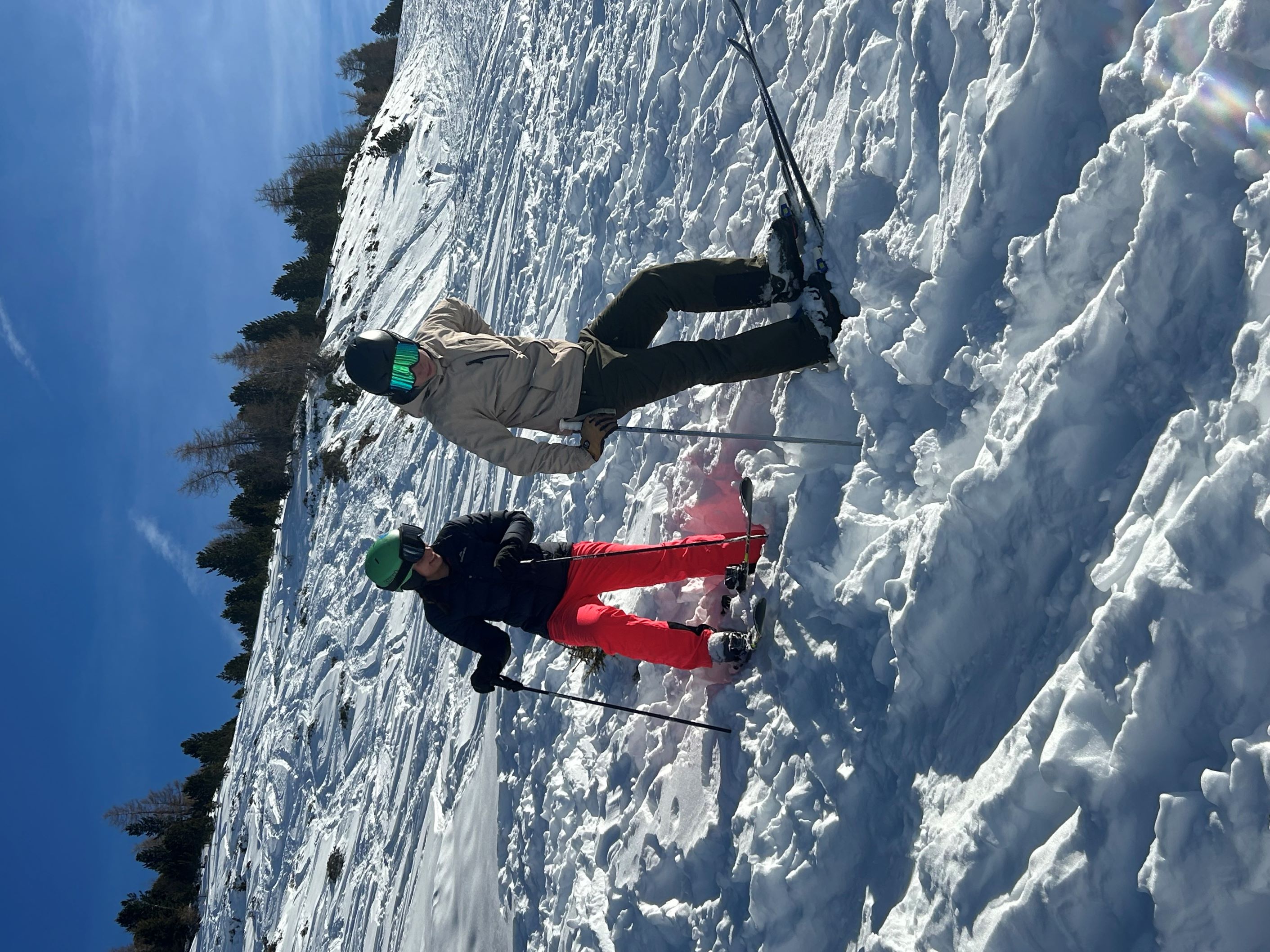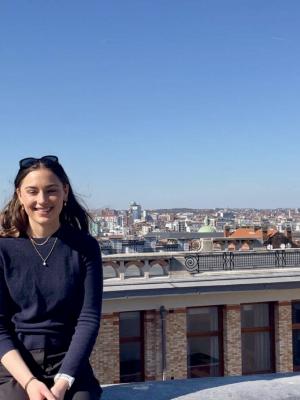Motivation
I was motivated by a desire for a life-changing experience that would challenge me and broaden my horizons. I wanted to immerse myself in a completely new culture, make new lifelong friends, and gain different perspectives from lecturers in a field I’m passionate about.
Personal Development
For the first time, I found myself in a country across the world with a different language and no immediate support network from my friends and family. Experiencing something this new and exciting, I was walking around wearing rose coloured glasses. However, I was yet to realise that what I was about to embark on was a personal challenge, albeit a rewarding one. I participated in the IGET meet & greet event to find other students going to TUM, applied, and got into an orientation program called party animals through ESN (Erasmus student network), and attended events hosted by my student accommodation. Through this, I made lots of culturally diverse lifelong friends, some of whom helped me learn the necessary German to get around (but this was not required). I learnt that the rewards of exchange reflect only the effort I put in. Most importantly, by becoming a “yes” person, I was open-minded, confident, and experienced a myriad of opportunities I would otherwise miss out on.
Academic Development
TUM has a very different academic system with 100% final exams (for most courses) at the end of the semester, which can go over two months. Additionally, in most cases, there was limited or no access to past exams or tutorials, and the exams were very time restrictive (either 1 hour or 1 hour and 30 minutes). The biggest challenge of this was finding a balance between study, travel, and/or social events, and knowing which resources to study. I stopped traveling in the few months before exams and studied with my friends. Unique to this academic system, all students had the same fluctuation in assessment load, so we were all on the same page with how focused or relaxed our study could be. I contacted course coordinators for clarification on exam resources and used an online student community-based website called Studocu to get exam notes and resources. I learnt quite quickly how to adapt to this system, focusing on more technical questions, time-based study techniques, and resourcefulness.
Professional Development 
Finding my footing in university and the administrative parts of Germany, my exchange was heavily focused on the development of transferable, soft skills. I faced many day-to-day problems where diverse perspectives and ideas shared developed the type of open-mindedness required for industry. I also spoke with peers who discussed their experience in internship opportunities in Munich. I learnt about international career opportunities and where to find information on applications, and grew a global network of peers in my field of study.
Costs and Budget
When applying for a German visa, the option I took to prove funding was a blocked bank account. This meant that I was given approximately 900 euros each month to spend. But used a savings account for additional spending.
• Accommodation: €340/month
• Transport: €29–30/month (Deutschland ticket)
• Food: ~€300/month (sharing meals with friends helped reduce this)
• Travel: Variable - ESN trips were budget-friendly, but I often opted for Flixbus or car trips with friends
Be honest about your budget when planning trips with your friends - most students prefer cost-effective activities anyway. In total, I spent around AUD $30,000, but it's possible to do it for less with careful planning.
Funding
The funding I received was crucial - it allowed me to fully participate in exchange life, including trips and extracurriculars like skiing. It took off financial pressure and helped me say yes to unique experiences that shaped my time abroad.
Accommodation
I found out about student accommodation through UQ and online forums. I lived in Olympia Park, which I’d highly recommend. I had a private bathroom and kitchenette - compact, but very practical and affordable.
It was on a public transport line, near parks and running trails, and the complex had a grocery store, bar, and laundromat. Events hosted by the student community helped me meet people easily.
My advice: apply early, consider proximity to public transport, and don’t underestimate the value of a socially active student housing option.
Highlights 
It’s hard to choose one highlight, but the Party Animals orientation program stands out - it helped me form the friendships that shaped my exchange. Some of the other highlights include:
• Skigaudi, the biggest student Winterfestival in Europe, featuring a mountain-top rave in Axamer Lizum.
• A spontaneous road trip to Vienna, Budapest, and Bratislava
• Studenten im Schnee, an affordable student ski day trip to Austria that always ended with an après-ski bus party
Top Tips
1. Be open to everything – become a “yes” person. There are so many unexpected things that can happen.
2. Plan but be flexible to changes, some of my fondest memories were getting to a city and being up for an adventure or side quest.
3. Do as many orientation events as you can
4. Enjoy the mundane – dinner with friends, catching the U-Bahn, or walking through the areas you live in can be the best wholesome memories to look back on

